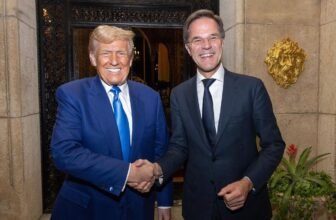
US-Ukraine Critical Minerals Deal: A High-Stakes Meeting
(Reuters) – On February 28, 2025, President Donald Trump and Ukrainian President Volodymyr Zelenskyy met at the White House for a standalone discussion to finalize a bilateral critical minerals agreement between the United States and Ukraine. However, the meeting turned into a heated confrontation, leaving the deal unsigned.
The Proposed US-Ukraine Critical Minerals Deal
The proposed critical minerals deal aimed to grant the United States access to Ukraine’s vast reserves of rare earth minerals, which are essential for industries such as defense, aerospace, and renewable energy. In return, Ukraine expected financial investments and continued U.S. support. President Trump emphasized that the agreement would serve as a way for Kyiv to repay its debt to the U.S. for the extensive military and financial aid provided during its ongoing conflict with Russia.
Tensions Rise in the Oval Office
The discussions quickly turned sour when President Trump accused President Zelenskyy of being “disrespectful” and “gambling with World War III.” Meanwhile, Vice President JD Vance criticized Zelenskyy for what he perceived as a lack of gratitude for American support. The heated exchange led to the abrupt cancellation of the scheduled press conference, and Zelenskyy left the White House earlier than planned.
Impact on US-Ukraine Relations
The failed minerals agreement has created uncertainty in the future of US-Ukraine relations. As the U.S. looks to reduce its dependence on Chinese mineral imports, Ukraine views the partnership as crucial for its post-war economic recovery and national defense. President Zelenskyy has stated that Ukraine remains open to negotiations but insists that security guarantees must be included alongside economic agreements.
International Reactions to the Fallout
Several European leaders have expressed concern over the strained U.S.-Ukraine relationship. French President Emmanuel Macron and British Prime Minister Keir Starmer have reaffirmed their commitment to supporting Ukraine and stressed the importance of Western unity in countering Russian aggression. The breakdown of the agreement has also raised questions about the stability of international support for Ukraine’s war efforts.
FAQ Section
What was the goal of the US-Ukraine critical minerals deal?
The deal aimed to grant the United States access to Ukraine’s rare earth minerals, which are vital for industries such as electric vehicles and defense. In return, Ukraine expected financial investments and continued U.S. support.
Why did the meeting between President Trump and President Zelenskyy become heated?
Disagreements arose over the terms of the deal, with President Trump accusing Zelenskyy of being ungrateful for U.S. aid, which escalated into a tense exchange.
What happens if the critical minerals deal is not signed?
The failure to reach an agreement casts uncertainty over U.S.-Ukraine relations and could affect strategic goals, such as the U.S. reducing reliance on Chinese minerals and Ukraine securing financial support for its recovery.
How have other countries responded to the breakdown of the deal?
European leaders have expressed concern over the deteriorating U.S.-Ukraine ties, urging Western allies to maintain unity in supporting Ukraine against Russian aggression.
We encourage our readers to share their thoughts in the comments section on how this development could impact global relations and geopolitical stability.






